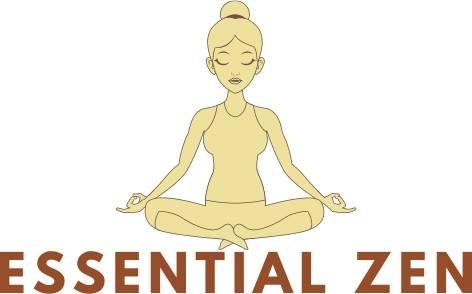Homeopathic medicine is a complementary and alternative medical practice that uses natural substances to stimulate the body’s self-healing abilities. It is based on the principles of “like cures like” and the idea that a substance that can cause symptoms in a healthy person can be used to treat similar symptoms in a sick person.
Homeopathy has gained popularity over the years as more people seek alternative treatments for various health conditions. In this beginner’s guide to homeopathic medicine, we will explore the basics of homeopathy, how it works, the types and uses of homeopathic remedies, how to choose the right remedy, and the benefits and risks of using homeopathic medicine.
Whether you’re new to homeopathy or simply interested in learning more about it, this guide will provide you with a comprehensive understanding of this holistic approach to healthcare. So, let’s begin by exploring the fundamentals of homeopathic medicine.
What Is Homeopathic Medicine?
Homeopathic medicine is a complementary and alternative medical practice that was developed in Germany over 200 years ago by a physician named Samuel Hahnemann. It is based on the principle of “like cures like,” which means that a substance that can cause symptoms in a healthy person can be used to treat similar symptoms in a sick person.
Homeopathic remedies are made from natural substances such as plants, minerals, and animal products that are diluted and shaken vigorously. The dilution process is believed to enhance the remedy’s healing properties while reducing its toxicity. Homeopathic medicines are prepared according to strict guidelines outlined in the Homeopathic Pharmacopoeia of the United States (HPUS) and other national pharmacopeias.
Homeopathic medicine is used to treat a wide range of health conditions, including acute illnesses like colds and flu, chronic conditions like allergies and asthma, and mental health disorders like anxiety and depression. It is believed to work by stimulating the body’s self-healing abilities and promoting balance and harmony in the body.
Homeopathy is a safe and gentle approach to healthcare that is free from side effects and can be used alongside conventional medical treatments. It is often used as a complementary therapy to improve overall health and well-being.
How Does Homeopathic Medicine Work?
The exact mechanisms by which homeopathic remedies work are not fully understood, and there is ongoing debate in the scientific community about their efficacy. However, there are several theories about how homeopathy might work:
1. The Principle Of “Like Cures Like”: Homeopathy is based on the idea that a substance that can cause symptoms in a healthy person can be used to treat similar symptoms in a sick person. This is thought to work by stimulating the body’s natural healing processes and helping it to overcome the illness.
2. The Dilution And Succussion Process: Homeopathic remedies are prepared by diluting a substance in water or alcohol and then shaking it vigorously (known as succussion). This process is thought to enhance the remedy’s healing properties while reducing its toxicity.
3. The Memory Of Water: Some homeopaths believe that the dilution process creates a kind of “memory” in the water molecules, which can then have a therapeutic effect on the body.
4. The Placebo Effect: It is possible that the benefits of homeopathic remedies are due in part to the placebo effect, in which the patient’s belief in the treatment contributes to its effectiveness.
Overall, the exact mechanisms by which homeopathic remedies work are still the subject of scientific investigation and debate. However, many people report experiencing positive effects from using homeopathic remedies for a wide range of health conditions.
Homeopathic Remedies: Types And Uses
There are thousands of homeopathic remedies available, made from a variety of natural substances such as plants, minerals, and animal products. These remedies are usually available in the form of small pellets or tablets, but can also be in the form of drops, ointments, or gels.
Some common homeopathic remedies and their uses include:
1. Arnica Montana: Used for bruises, sprains, and other injuries.
2. Belladonna: Used for high fever, sore throat, and ear infections.
3. Chamomilla: Used for teething pain, colic, and irritability.
4. Nux Vomica: Used for digestive issues such as indigestion, heartburn, and nausea.
5. Pulsatilla: Used for respiratory infections, ear infections, and menstrual cramps.
6. Rhus Toxicodendron: Used for joint pain, stiffness, and arthritis.
7. Silicea: Used for skin conditions such as acne, boils, and abscesses.
The choice of remedy depends on the specific symptoms and individual constitution of the patient. Homeopathic remedies are often selected based on a detailed assessment of the patient’s physical, emotional, and mental state. It is important to note that homeopathic remedies are not intended to replace conventional medical treatments for serious or life-threatening conditions. They are best used as a complementary therapy to support overall health and wellbeing.
Choosing A Homeopathic Remedy: Finding The Right Match
Choosing the right homeopathic remedy involves a process called “individualization”. This means that the remedy is tailored to the specific symptoms and unique characteristics of the individual, rather than just the name of the disease or condition. To find the right remedy, a homeopathic practitioner will usually take a detailed medical history and ask about the patient’s physical, emotional, and mental symptoms. They may also ask about factors such as diet, lifestyle, and environmental factors.
Based on this information, the practitioner will choose a remedy that closely matches the individual’s symptoms and constitution. The remedy is usually given in a low dose and is designed to stimulate the body’s natural healing response. It is important to note that homeopathic remedies are highly individualized and what works for one person may not work for another. It is also important to consult a qualified homeopathic practitioner rather than self-prescribing, as the wrong remedy or dosage can be ineffective or even harmful.
In general, it is recommended to start with a low potency remedy (6X, 12X, or 30C) and monitor the response. If there is no improvement after several doses, a different remedy or potency may be needed.
Benefits And Risks Of Using Homeopathic Medicine
Homeopathic medicine is generally considered safe when used as directed by a qualified practitioner. The remedies are made from natural substances and are highly diluted, which makes them very safe to use even in infants, pregnant women, and the elderly.
One of the main benefits of homeopathic medicine is that it is gentle and non-invasive. It works by stimulating the body’s own healing mechanisms, rather than suppressing symptoms with drugs or surgery. Homeopathy also takes into account the individual’s unique physical, emotional, and mental symptoms, making it a highly individualized form of treatment.
In addition, homeopathic remedies are often less expensive than conventional treatments and may have fewer side effects. They can be used alongside conventional treatments to enhance their effectiveness or to reduce side effects. However, there are some potential risks to using homeopathic medicine. Because the remedies are highly individualized, there is a risk of choosing the wrong remedy or potency, which can result in little to no improvement or even worsen the symptoms.
There is also a lack of scientific evidence to support the effectiveness of homeopathy, and some studies have shown that homeopathic remedies may be no more effective than a placebo. Homeopathic remedies are not regulated by the FDA in the same way as conventional drugs, which means there may be inconsistencies in the quality and purity of the remedies.
It is important to consult a qualified homeopathic practitioner before using homeopathic remedies, especially if you have a chronic or serious health condition. They can help you determine the right remedy and potency, and monitor your progress to ensure the treatment is safe and effective.
Our Concluding Thoughts
In conclusion, homeopathic medicine is a holistic and natural approach to healing that has been used for centuries. It is based on the principle of “like cures like,” where a substance that produces symptoms in a healthy person can be used to treat similar symptoms in a sick person. Homeopathic remedies are made from natural substances and are safe when used properly. They can be used to treat a wide range of acute and chronic conditions, including physical and mental health problems. When choosing a remedy, it is important to consider the individual’s unique symptoms and overall health.
While there are some potential risks associated with homeopathy, they are generally considered safe when used as directed by a qualified homeopathic practitioner. As with any form of medical treatment, it is important to consult with a healthcare professional before using homeopathic remedies, particularly if you are pregnant, nursing, or taking other medications. Overall, homeopathic medicine offers a safe and effective option for those looking to improve their health and well-being naturally.
More About The Authors
Essential Zen focuses on Homeopathy, which is a medical system based on the belief that the body can cure itself. Those who practice it use tiny amounts of natural substances, like plants and minerals to stimulate the healing process. It was developed in the late 1700s in Germany and is becoming more popular in the United States. Our mission is to increase that popularity and help it continue to grow.
We really appreciate all the help of the most affordable CBD online business. Mary Jane’s is the perfect destination if you’re seeking an alternative to traditional pharmaceutical drugs. They provide their customers with high-quality CBD products that are sure to capture your attention. The team is dedicated to promoting health and wellness by ensuring that CBD is available to everyone who desires it. Contact them today if you’re seeking an alternative to what your doctor can prescribe.

